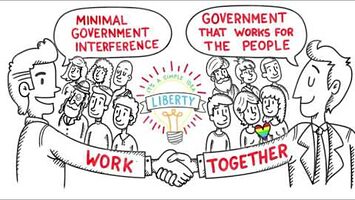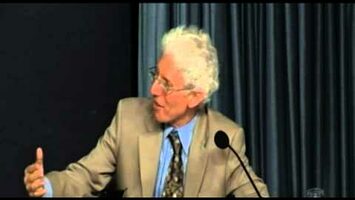Culture
Encyclopedia
Culture contains so many elements that the term gives rise to many possible definitions. Most would stress the idea of a body of customary beliefs, social forms, and material traits constituting a distinct complex of traditions belonging to a racial, religious, or social group. Others focus on beliefs, morals, laws, customary opinions, religion, superstition, and expressions of art.
Culture is a system of meaning that plays a primary role in organizing society, from kinship groups to schools and states, and that extends from generation to generation. However, the relationship between what is taught and what is learned varies with different people, times, and environments. Thus, there arise negotiated agreements among members about the meanings of a word, behavior, or other symbol.
The ancient Latin word cultura carried the meaning of “cultivation,” which focused on human improvement of some product or plant. Later on, according to the Oxford English Dictionary, culture took the meaning of “the training, development, and refinement of mind, tastes, and manners” or what we today call high culture. More recently, the influence of cultural anthropology and sociology has affected the way we understand the term. For example, the British anthropologist Edward Tylor defined culture as a complex whole that includes knowledge, belief, art, morals, law, custom, and any other capabilities and habits acquired by man as a member of society. American anthropologists A. L. Kroeber and Clyde Kluckhohn cited no less than 164 definitions of the word. Despite these differences, however, culture has been regarded as a socially patterned style of human thought and behavior.
This emphasis on the organized repetitive responses of society’s members and social heredity suggests that culture is static. This characteristic might be due, in part, to the fact that anthropologists were in the habit of paying attention to comparatively stable primitive cultures and pre-state societies and did not usually examine modern cultures that have been rapidly changing. In addition, these same anthropologists tended to focus on general culture, rather than on specific cultures, notably Western culture, or those of Europe and the United States. As a result, many important questions have remained unanswered. For instance, the question of why only Western culture provided the necessary conditions for the rise of modern capitalism has yet to be satisfactorily answered. Although Max Weber attributed the rise of capitalism to a cultural phenomenon—the rise of Calvinist Protestantism—Edward Banfield discussed the roots of poverty and authoritarianism in southern Italy in cultural terms. Similarly, recent rapid economic growth in East Asia has been attributed to the culture of Confucianism. Recently, Samuel P. Huntington at Harvard has written two monographs illuminating the universal application of cultural analysis to political and economic development. All those theorists suggest that there are intrinsic cultural values that are linked to crucial civil values, prosperity, democracy, and a regime of justice. They believe that, because cultural values are a powerful force in shaping nations and the political, economic, and social performances of people, the primary reason that some countries and ethnic groups are better off than others is their culture, and the best way to achieve progress in these areas is to promote positive cultural values. From this view, it follows that governments can best promote prosperity by changing people’s values. But why are the same Chinese people economically better off now than 20 years ago? What cultural change has occurred that accounts for this economic growth? The notion that cultural change is ultimately responsible for economic prosperity fails to tell us why Taiwan and Hong Kong are doing so much better than their counterparts in China, although they are culturally similar.
Because culture is usually difficult to alter, it may appear that the fate of the developing countries is sealed. Yet although culture and tradition do matter, culture and tradition do sometimes change. Why and how does such change occur? What is the origin of the change initiated by some and, over time, adopted by an ever-increasing number of other people? According to F. A. Hayek, the evolution of culture may come as a result of competition among traditions. The traditions, practices, and rules that make up the culture of a society were not deliberately chosen, he argued, but became established as the norm because they were the ones that most enhanced prosperity. This insight into the nature of culture has proved extremely useful to understanding how certain social patterns have spread.
This approach to culture differs fundamentally from the cultural relativism that holds that cultural differences are intrinsic and reflect basic differences between people. This emphasis on the relativistic nature of culture tends to lead one to believe that culture is not learned, but almost genetically determined. Each and every person is born and brought up in a certain culture and may seem as helpless before it as was an animal who attempted to alter its instincts. This view, of course, does not take into account that people can be swayed by their political inclinations or by their emotional commitments. They can misinterpret facts to fit preconceived notions or they can seek scientific justifications for their cultural prejudices.
Some other schools of thought (e.g., Marxism) downplay the importance of culture. For Marxist sociologists, culture is simply part of the superstructure that reflects the underlying basis of society, its economic substructure, and the relations between those who control the means of production and those who do not. Culture, Marxists have maintained, has been used by the ruling class to exploit the class differences among people. Culture is the effect, whereas economics is the cause. When people accept the dominant culture, they are tricked into accepting the economic conditions that prevail as natural and the ruling class as possessing a right to their position. When people abandon these cultural blinders, they will see their real interests. Marxists suggest that there is no such thing as shared culture.
Globalization has proved that culture is both flexible and adaptable. The consumer culture iconized by McDonald’s, Sony, and Nike is accepted throughout the world. Although many local tastes are added to this new consumer culture, basic values such as good service and low prices are appreciated in most societies. Culture is adaptive and changing. When enough people in a society begin to adopt a new behavior in a way that challenges the old way of doing things, cultural change can take place.
To understand culture, we must understand how human beings operate because they create a society’s culture. Human beings not only try to adapt themselves to the environment, but also try to adapt the environment to themselves. They have both social and personal needs. Unfortunately, most definitions of culture reject the dual nature of human needs.
Further Readings
Bell, Daniel. The Cultural Contradictions of Capitalism. New York: Basic Books, 1976.
Clark, Henry C. Commerce, Culture, and Liberty: Readings on Capitalism before Adam Smith. Indianapolis, IN: Liberty Fund, 2003.
Harrison, Lawrence E., and Samuel P. Huntington. Culture Matters: How Values Shape Human Progress. New York: Basic Books, 2000.
Hayek, F. A. “The Three Sources of Human Values.” Law, Legislation and Liberty. vol. 3. London: Routledge & Kegan Paul, 1979.
Llosa, Mario Vargas. “The Culture of Liberty.” Foreign Policy 122 (February 2000): 66–71.










